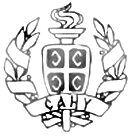Prikaz osnovnih podataka o dokumentu
Јединствени други: функционална унификација других у диксурсу Срба из Мађарске
Unifying the Other: Discourse of the Serbs from Hungary
| dc.contributor | Лазаревић Радак, Сања (ур.) | |
| dc.contributor | Орлић, Милан (ур.) | |
| dc.creator | Илић (Мандић), Марија | |
| dc.date.accessioned | 2020-04-20T10:28:25Z | |
| dc.date.available | 2020-04-20T10:28:25Z | |
| dc.date.issued | 2012 | |
| dc.identifier.issn | 0353-5525 | |
| dc.identifier.uri | https://dais.sanu.ac.rs/123456789/8149 | |
| dc.description.abstract | The small Serbian speech community in Szigetcsép in Hungary has experienced throughout the 20th century a constant demographic decline and has undergone the process of language shift. Thus, discourse on the other among the elder generations is a very complex one and subject of constant negotiations. In this paper, I tried to draw attention to one feature of the Szigetcsép Serbs’ discourse on the other, and that is the functional merging and unification of the other. Before the Second Worlds War, the German community was the dominant one in the village, living alongside the smaller Serbian community. After the majority of Germans was collectively expelled from Hungary, the Magyars were colonized in Szigetcsép, which changed in a drastic way the ethnic composition of the village. However, although the elder Szigetcsép Serbs make a nominal difference when referring to thе dominant “other” before and after the Second World War, they tend to construct both Germans and Magyars as a single complex collective actor who plays the role of the “constitutive other” in their worldview. | en |
| dc.description.abstract | Мала српска говорна заједница у Чипу Мађарској доживљавала је током 20. века константан демографски пад и прошла процес промене језика. Стога је дискурс о Другом међу старијим генерацијама врло сложен и предмет сталних преговора. У овом раду покушала сам да скренем пажњу на једну карактеристику дискурса Срба из Чипа о Другом, а то је функционално спајање и обједињавање Другог. Пре Другог светског рата, немачка заједница је била доминантна у селу, живећи упоредо с мањом српском заједницом. Након што је већина Немаца колективно прогнана из Мађарске, Мађари су колонизовани у Чип, што је на драстичан начин променило етнички састав села. Међутим, иако старији чипски Срби праве номиналну разлику када се реферишу доминантне Друге пре и после Другог светског рата, они теже да конструишу и Немце и Мађаре као јединственог сложеног колективног актера који игра улогу “конститутивног Другог” у њиховом виђењу света. | sr |
| dc.language.iso | sr | sr |
| dc.publisher | Панчево : Заједница књижевника Панчева | sr |
| dc.relation | info:eu-repo/grantAgreement/MESTD/Basic Research (BR or ON)/178010/RS// | sr |
| dc.rights | openAccess | sr |
| dc.rights.uri | https://creativecommons.org/licenses/by-nc/4.0/ | |
| dc.source | Свеске: књижевност, уметност и култура | sr |
| dc.subject | minority studies | sr |
| dc.subject | ethnographic fieldwork | sr |
| dc.subject | anthropological linguistics | sr |
| dc.subject | critical discourse analysis | sr |
| dc.subject | Serbian minority in Hungary | sr |
| dc.subject | constitutive other | sr |
| dc.subject | functional unification of the other | sr |
| dc.subject | студије мањине | sr |
| dc.subject | етнографско теренско истраживање | sr |
| dc.subject | антрополошка лингвистика | sr |
| dc.subject | критичка дискурс анализа | sr |
| dc.subject | српска мањина у Мађарској | sr |
| dc.subject | конститутивни Други | sr |
| dc.subject | функционална унификација Другог | sr |
| dc.title | Јединствени други: функционална унификација других у диксурсу Срба из Мађарске | sr |
| dc.title | Unifying the Other: Discourse of the Serbs from Hungary | en |
| dc.type | article | sr |
| dc.rights.license | BY-NC | sr |
| dcterms.abstract | Ilić (Mandić), Marija; Jedinstveni drugi: funkcionalna unifikacija drugih u diksursu Srba iz Mađarske; | |
| dc.citation.spage | 77 | |
| dc.citation.epage | 85 | |
| dc.citation.issue | 105 | |
| dc.type.version | publishedVersion | sr |
| dc.identifier.fulltext | https://dais.sanu.ac.rs/bitstream/id/31267/Ilic_Marija_Jedinstveni_drugi_funkciona.pdf | |
| dc.identifier.rcub | https://hdl.handle.net/21.15107/rcub_dais_8149 |

